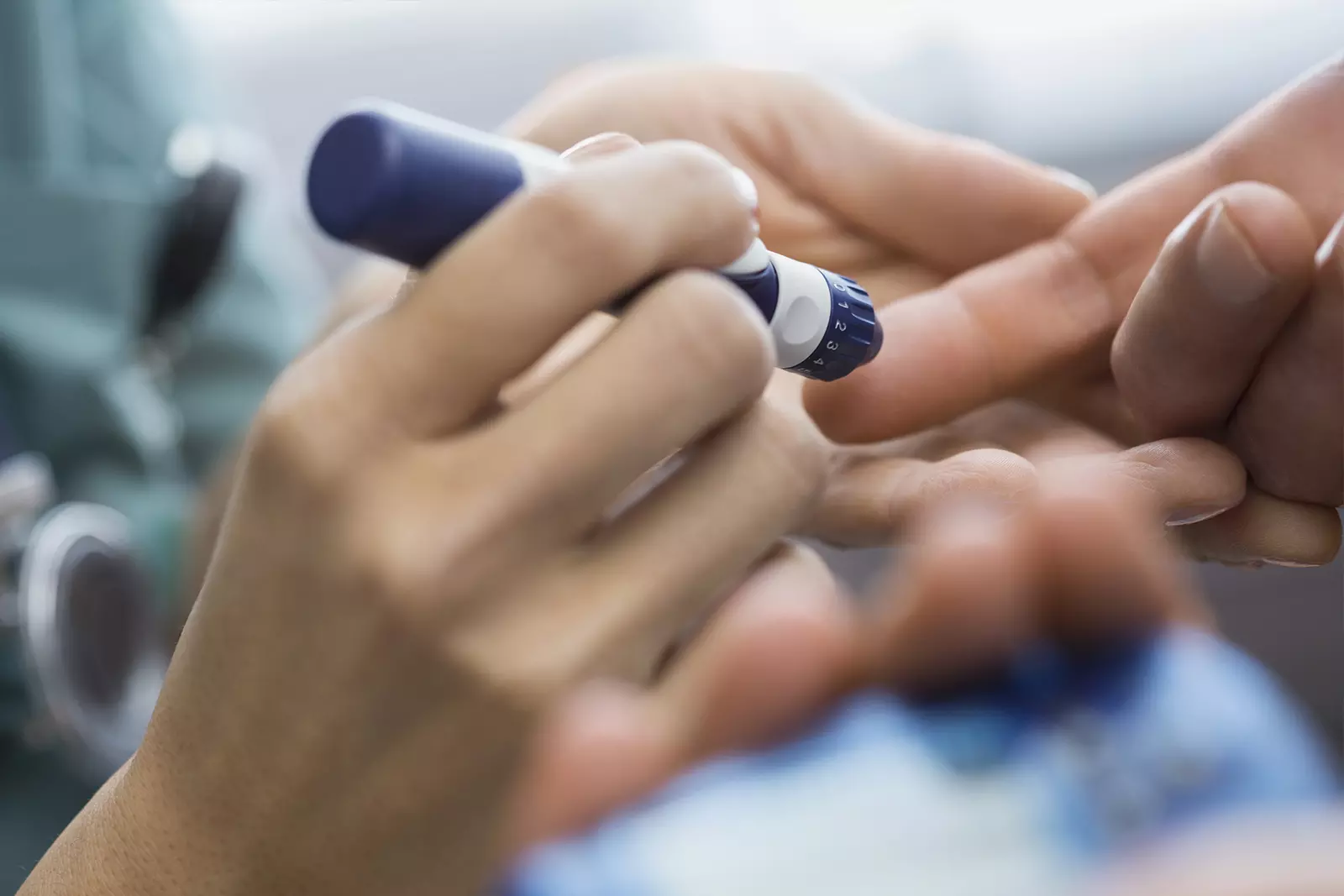- AdventHealth Foundation Central Florida
Choose the health content that’s right for you, and get it delivered right in your inbox.

Experts from around the world gathered at the National Institutes of Health in Bethesda, MD, to discuss the current state and progress in artificial insulin delivery, commonly referred to as the artificial pancreas. In multiple sessions spanning two days, one of those moderated by Dr. Anna Casu, a Translational Research Institute Associate Investigator, scientists shared their research endeavors aimed at assisting individuals living with Type 1 diabetes.
The focal point of the meeting revolved around developing a fully closed-loop system that eliminates the need for patient intervention in administering insulin. Various strategies were explored, including augmenting insulin with other medications, and employing different algorithms and sensors to detect meal intake and physical activity.
"The ultimate objective of artificial insulin delivery is to replicate the functioning of a healthy pancreas," explained Dr. Casu. By amalgamating multiple factors such as chewing, arm movement during eating, exercise, and heart rate, researchers aspire to create a system that can automatically regulate insulin delivery without requiring manual adjustments.
Dr. Casu played a vital role in moderating a session that emphasized delivering insulin directly into the abdomen, closely mirroring the physiological process, and expected to yield improved outcomes. Although these studies are not yet ready for human trials, scientists anticipate that more information regarding this novel insulin delivery method will be available in the upcoming year.
Additionally, the meeting explored the use of different medications alongside insulin to enhance glucose control and the detection of other metabolites circulating in the blood that could influence insulin secretion.
"The meeting atmosphere was filled with excitement and hope," stated Dr. Casu. "After a hiatus due to the COVID-19 pandemic, participants were thrilled to reunite and engage in valuable interactions with fellow scientists."
A noteworthy aspect of the meeting was the inclusion of a roundtable where patients with type 1 diabetes expressed their needs and desires regarding treatment. This patient-centric approach ensures that scientific advancements align with the expectations and preferences of those directly affected by diabetes. Patient input is pivotal in guiding future research and development efforts. "The patients' concerns revolved around issues such as insurance coverage for new technologies, the need for fully automated systems, frustration with device interactions, access to healthcare professionals, and the ability to maintain glucose levels within the desired range. Despite these challenges, the participants had an overwhelming sense of hope," remarked Dr. Casu. They acknowledged that progress is being made, and new technologies hold promise for improving the lives of individuals with type 1 diabetes.
Dr. Casu emphasized the accelerated pace of Type 1 diabetes research, stating that progress is being made. The primary objective is to advance artificial insulin delivery systems to a stage requiring minimal patient interaction. The ultimate goal is to develop a seamless system that reduces the burden on patients, eliminating the need for constant monitoring and calculations.
The meeting left Dr. Casu feeling optimistic about the future. "The outcomes and discussions from the meeting are expected to resonate with patient advocates, pharmaceutical companies, and funding agencies, fostering collaboration and driving efforts toward finding practical solutions for diabetes management."
Dr. Casu believes that the meeting not only showcased the advancements in artificial insulin delivery but also highlighted the dedication of researchers, healthcare professionals, and patient advocates in enhancing the lives of individuals with Type 1 diabetes.
"With collective efforts and an accelerated pace of development, the future holds great promise for the realization of fully automated insulin delivery systems, providing hope for improved diabetes management worldwide."
Recent News
Debunking some of the most prevalent myths about T1D and explore the science behind the facts.
As we look forward to the new year, the field of diabetes research continues to make significant strides.
The ACT1ON Consortium is making significant strides in the field of weight management for individuals with Type 1 diabetes. Comprising multiple institutions, including the AdventHealth Translational...
Type 1 diabetes is a condition in which the body cannot produce insulin, the hormone that regulates blood sugar levels. Insulin helps glucose, the body's primary source of energy, move from the...
Artificial Intelligence (AI) is transforming the medical field by providing powerful tools for diagnosing diseases, developing treatment plans, and improving patient outcomes. So how will AI help us...
Dr. Rajesh Shah has been a tireless advocate, partner, and champion for AdventHealth Foundation Central Florida and we are excited to award him as the February Volunteer of the Month. Dr. Shah is...
AdventHealth Foundation Central Florida is honored to recognize Rita Valdivia as the January Volunteer of the Month. Read more about her tremendous impact here.
Humans 4 Health partners with the AdventHealth Foundation of Central Florida for their inaugural event.
For February, Heart Month, we honor Joe Nunziata. Following his heart valve replacement in 2007, Joe wanted to express his gratitude by getting involved with the hospital and founded the Heart, Lung...
AdventHealth Foundation Central Florida is grateful to be a recipient of his and Pepsi’s amazing work. We are delighted to spotlight Ned for the Volunteer of the Month for October.
Due to her NICU experience, Heather and her husband Jamie are forever thankful to the experts who knew immediately how to help their daughter while keeping the nervous new parent as calm and educated...
AdventHealth is honored to spotlight Dr. Wladis for his incredible leadership and partnership with AdventHealth Foundation Central Florida to raise community awareness and funds for the Cardiovascular...












